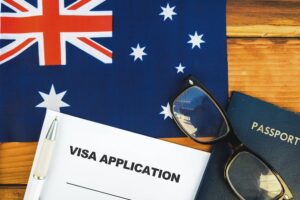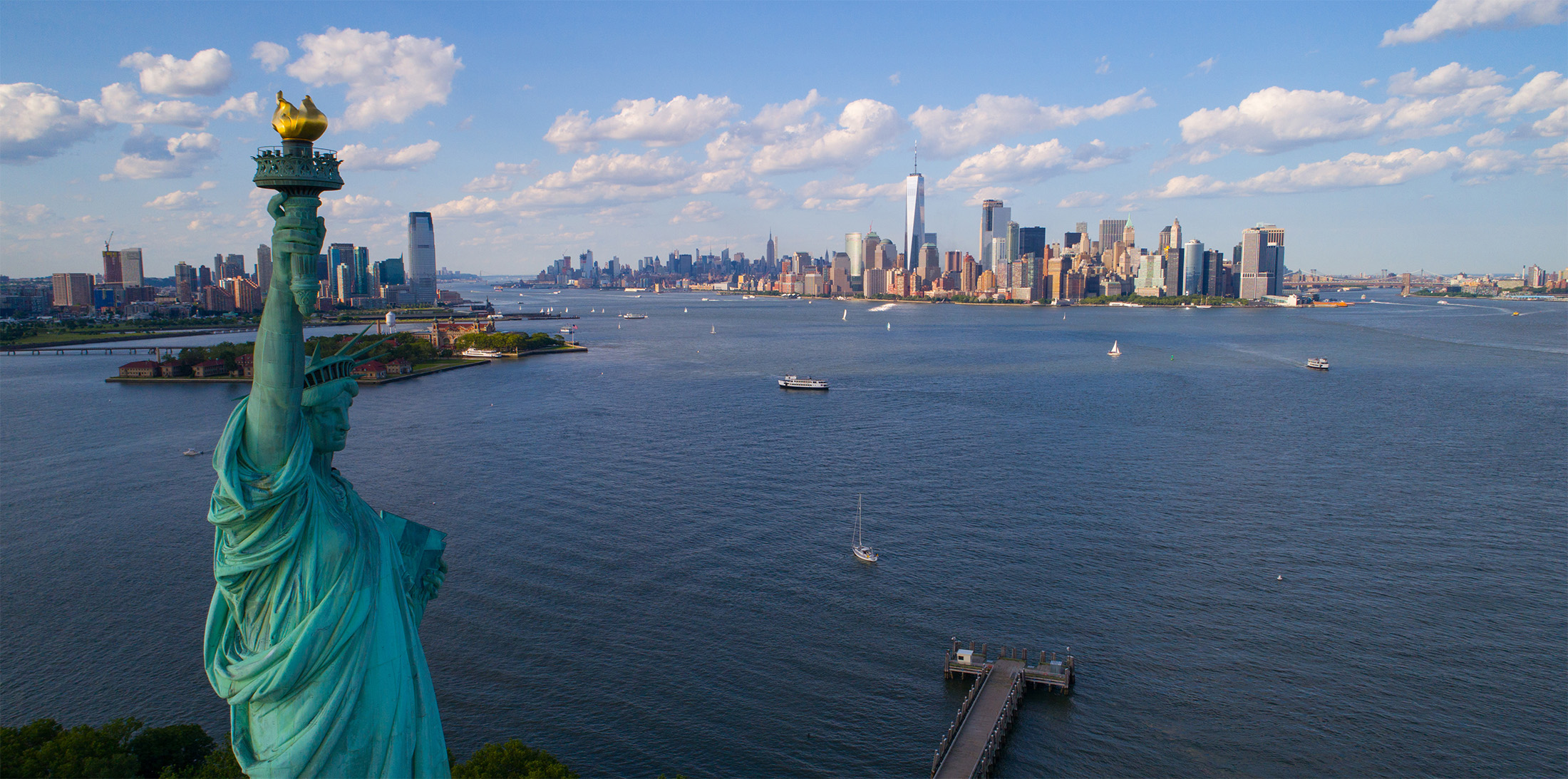
Any foreign citizen who wants to enter the United States must have a visa. The visa could be a Nonimmigrant Visa that allows for a temporary stay or an immigrant visa for a permanent residence.
Nonimmigrant Visa is issued to tourists, business people, students who want to study in the U.S., and specialty workers for a temporary period to complete specific purposes. People qualifying to get a non-immigrant Visa must prove to the consular officer that they’ll leave the U.S. after their temporary stay.
The most common Visa categories in the United States include:
Business or Tourist Visa
There are two primary types of Visas offered under this business or tourist Visa, including:
- B-1 Visa for business associates is issued to individuals those attending business conventions, educational conferences, scientific convections, negotiating contracts, or settling up an estate.
- B-2 for medical treatment or pleasure. This includes visiting friends and family, and those visiting the United States for tourism purposes, for medical treatment, social or service activities.
Often, B-1 and B-2 visas are issued as one visa. However, to qualify for these two types of visas, you must prove to the consular officer that you intend to travel to the U.S. is for a limited period and your stay in the U.S. is temporary. Also, you must show evidence of funds to cover your expenses while you’re in the United States. Further, you must prove that you have a permanent residence outside the U.S. that you have to return to. While you’re on a visitor Visa it’s illegal to accept employment in the U.S.
Work Visas
To work in the United States temporarily, you require a specific Visa depending on the type of work that you’ll be doing. Applicants of H, L, O, P, and Q must get their Visa petition approved on their behalf by the United States Citizens and Immigration Services (USCIS). Form I-129 needs to be approved before you apply for a Work Visa at the Consulate. Then, your employer will receive Form I-797, which serves as an approval notification for your petition. When you’re giving your Visa interview at the Consulate, you must bring Form I-129 and a copy of Form I-797.
Types of Work Visas offered in the United States include:
H-1B Visa for a Specialty Occupation
To qualify for this type of visa, you must have a Bachelor’s degree in a specialty field and USCIS will assess if your employment is a specialty occupation and if you’re qualified to perform the service. The employer needs to file a labor condition application with the Department of Labor concerning the terms and conditions of your contract of employment.
H-2A Visa for Seasonal Agricultural Workers
This Visa allows United States employers to bring temporary workers to fill temporary agricultural positions for which United States workers aren’t available. The prospective employer has to file the Form I-129 petition on the worker’s behalf.
H-2B Visas for Unskilled and Skilled Workers
This Visa is granted to a temporary worker filling up a seasonal job for a short period of time for which there’s a shortage of U.S. workers.
H-3 Visa for Trainees
This Visa is required if you’re entering the U.S. to receive training in any field from an employer for a duration of up to 2 years. With this category of Visa, you can receive payment for the training. However, you can’t use this Visa to provide productive employment.
H-4 Visa for Dependents
If you hold a valid H visa, then your spouses together with your unmarried children under the ages of 21 are eligible for an H-4 Visa so that they can accompany you to the United States. However, your spouse and children who hold this Visa aren’t allowed to work in the U.S.
L-1 for the Intra-Company Transferee
This type of Visa is required if you’re an employee of international organizations and if the company is transferring you on temporarily to an affiliate or a subsidiary of the company or the parent branch. To qualify for this Visa, you must be at an executive or managerial level and you must have specialized knowledge in the position that you’re destined to hold in the United States. You must have worked with the international company continuously for at least one year within the 3 years preceding the application for a transfer to the U.S.
L-2 for Dependents
If you hold a valid L visa, your spouses together with your unmarried children under the age of 21 qualify to receive an L-2 Visa to enter the U.S. However, if your spouse wants to seek employment in the United States; they must submit a completed Form I-765 with the application fee. Your children aren’t eligible to work in the United States.
Type O Visa
This visa is offered to individuals with extraordinary ability in education, science, business, arts, and athletics or extraordinary achievement in television production and the motion picture.
Type P Visa
This type of Visa is offered to entertainers, athletes, artists, and essential support personnel who intended to perform in the U.S.
Type Q Visa
This type of Visa is required if you’re traveling to take part in an international cultural exchange program in the United States to provide employment, training, sharing the traditions and culture of your home country. Your Visa petition must be filed by the sponsor and it must be approved by USCIS.
Foreign nationals who come to study in the United States must be accepted by a school or program in the United States. After they’ve been accepted, they receive the necessary approval documents to submit when applying for the Student Visa. Students can apply for a Student Visa in 120 days from the start date of I-20 and they can travel to the United States within 30 days from the start of I-20. Visas offered in the United States for students include:
F-1 Visa
This type of visa is offered to students who wish to study in U.S.-approved schools or in approved English language programs. This Visa is necessary if your course takes up more than 18 hours a week. F-1 Visa is issued to students attending public secondary schools. However, the student are limited to 12 months at that school.
M-1 Visa
This category of Visa is provided to individuals who are planning vocational training, non-academic, or training in the U.S.
A foreign national can enter the United States to take part in the exchange visitor programs. However, before applying for this Visa, you must be accepted and approved by the authorized program sponsor. The exchange visitors get a J-1 Visa that promotes the interchange of skills and knowledge in various fields. J-1 Visa holders can be:
- Professors
- Teachers
- Research scholars
- Students at academic levels
- Professional trainees
- Visitors coming for consultation, travel, or research purposes.
Transit C Visas
This type of Visa is provided to foreign nationals who are traveling to another country through the United States. If the traveler wishes to visit their family and friends, then they have to seek layover privileges. However, they must qualify to get a B-2 Visa.
Crew D Visas
This type of Visa is provided to crew members who are serving on an aircraft or sea vessel. Typically, the crew members use the combination of the crew or transit Visa, including C-1 or D. A crew member who is entering the United States during time off between cruises or flights must have a B-1 or B-2 Visa.
R-Type Visa
An R-type visa is provided to individuals who want to work in a religious capacity in the United States for a short period of time. Religious workers include people who are authorized by recognized entities to conduct religious activities.
Domestic Worker Visas
Domestic or personal servants who accompany their employer to the United States qualify for B-1 Visa. These domestic employees include:
- Valets
- Housemaids
- Cooks
- Footmen
- Chauffeurs
- Butlers
- Gardeners
- Nannies
- Mother’ helpers
- Paid companions
The domestic servants of a government official or a foreign diplomat are eligible for a G-5 or A-3 Visa.
Contact Our New York Immigration Lawyers for Legal Help With Temporary Visas
A visa is a conditional authorization issued by a country’s authority to a person who isn’t a citizen of that country to enter and remain in the country for a specified duration. Each country attaches conditions to visas concerning the length of stay, validity period, territory covered, and the number of visits. There are various categories of temporary visas that you can obtain for purposes such as employment, education, or tourism.
Whatever your current circumstances are, we’ll answer any questions you have. Also, our legal team will guide you through the application process. Often, you’ll need supporting documentation for your visa application, and we’ll help you navigate through the preparation process. Contact our NYC immigration law firm today at (347) 868-6100 to discuss your temporary visa with an experienced immigration attorney.

